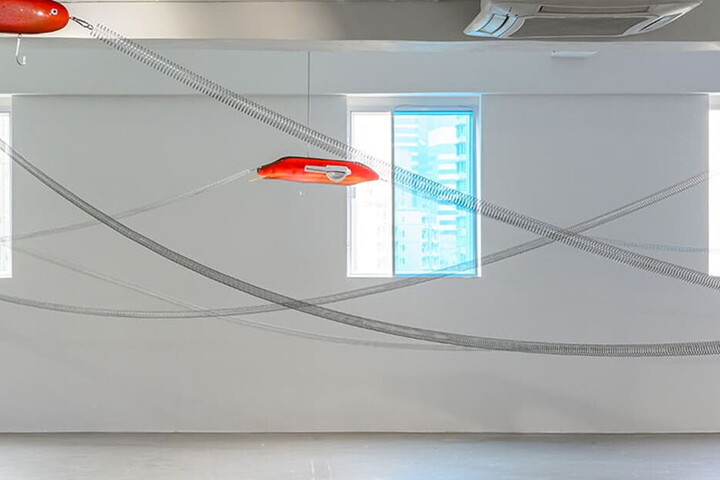A bright sunny day in the 1970s.
My Uncle Charlie, a drinker, a gambler, a ne'er-do-well, but a god in my eyes, took me to a baseball game. We went to see the New York Mets, who were dreadful, the worst team in baseball, but also gods in my eyes.
I was seven, I think. The memory is hazy, so I can't vouch for its accuracy. But maybe that's a good thing, maybe that's the best thing, since inaccuracy is a central point of the story.
The pitcher for the Mets that day was a baby-faced cowboy with a right arm kissed by God. He threw smoke. He threw comets. He threw fastballs nearly 100 miles an hour, close to the fastest speed ever recorded, and I noted with glee the tight eyes and pursed lips of every batter who stepped into the box against him.
But it wasn't the cowboy's awesome power that terrorized the batters. It was his complete lack of control. More often than not he had no idea where that baseball was going.
There's always the chance that a baseball will slip from a pitcher's grasp, that it will take an errant turn, hit the batter in the face or head. The chance is slim, but that underlying fear is a key part of the game's fundamental confrontation. With the cowboy, however, the slim chance was a likelihood. A question of when, not if.
Our seats were good, right off first base. It felt as though we could reach out and touch that lurid streak of white-violet light arcing from the cowboy's hand to the catcher's mitt. I recall the leathery bang of each pitch slamming into the mitt, a deeply satisfying sound, like a paper bag filled with air being smashed. Pow pow pow.
Even more satisfying was the fact that every pitch was a strike. By some miracle the cowboy had it that day, power and control. For five or six innings he held the other team to no runs and struck out eight or nine batters along the way. His face was pure joy. As mine must have been.
Then, just like that, he lost it. The ball started drifting. Left, right, up, down. It started sailing, bouncing in the dirt. Uncle Charlie sighed. Here it comes, he said.
Ball four. The cowboy walked a batter.
Ball four. He walked another batter.
Along with his control, the cowboy lost his composure. He started to sweat like the guilty man in a police lineup.
I looked at Uncle Charlie, frantic. Do something. Uncle Charlie looked at me with the placid frown of an ancient Stoic. What are you gonna do?
Another walk. The crowd stirred. Groans and boos rained down from the nosebleeds.
What's going to happen? I asked Uncle Charlie.
He lit a Marlboro and slowly held up four fingers. Sure enough, one two three four, the cowboy threw four straight balls, issuing another walk and forcing in a run.
At last the manager came out to lasso the cowboy. By then, however, it was too late. The other team had seized the lead, and the momentum, and the Mets did what they always do. They lost.
On the drive home Uncle Charlie went from Stoic to philosophe as he discussed the case of this pitcher. To have such a gift, he said, and to waste it like that---how sad.
To me, it was more than sad. It was tragic.
Years later I still think of that pitcher, still use him as motivation. He's an object lesson for anyone struggling with this question of control, which is to say: everyone.
We all make the mistake now and then of thinking the great athletes, actors, painters, doctors, entrepreneurs, et al., are gifted with special powers. In fact everyone has special powers. The ones who succeed are the ones who find ways of achieving durable, consistent control over their powers.
Glenn Gould, the fearsome pianist, obsessed about his beat-up old Steinway CD 318, and his special wooden stool with the legs sawed off, because both gave him maximum touch, feel, connection with the instrument. "This is the secret of doing Bach on the piano," he said. "You must have that immediacy of response,that control over fine definitions of things.”
Georgia O'Keefe, one of America's most important artists, a towering figure of Modernism painted with soul, mystery, passion. But in a famous letter to her dear friend she singled out the importance of keeping cool. "Self-control is a wonderful thing---I think we must even keep ourselves from feeling too much---often---if we are going to keep sane and see with a clear unprejudiced vision."
This war between power and control is woven into our DNA, because it's woven into the DNA of the universe. It was there at the start, moments after the Big Bang, physicists tell us: Energy versus Entropy, locked in a knife fight. The fight rages to this day. All energy, unless constrained, veers toward entropy, or chaos.
Energy equals power; constraint is control.
It's so simple, we forget.
Performance experts say the best method of cultivating control is to form good work habits, develop simple and repeatable mechanics, then practice, practice fiendishly. But this is only one path. There are many.
Of course, too much control creates its own problems. If power without control is nothing, control without power is death.
Just when you think you've got it all figured out … ball four.
The struggle begins again.
Actually it never ends, a realization that
can be hugely discouraging.
On such days I think back to a wild cowboy, and a beloved philosophe, and with a sigh I ask myself: What are you gonna do?
J.R. Moehringer




